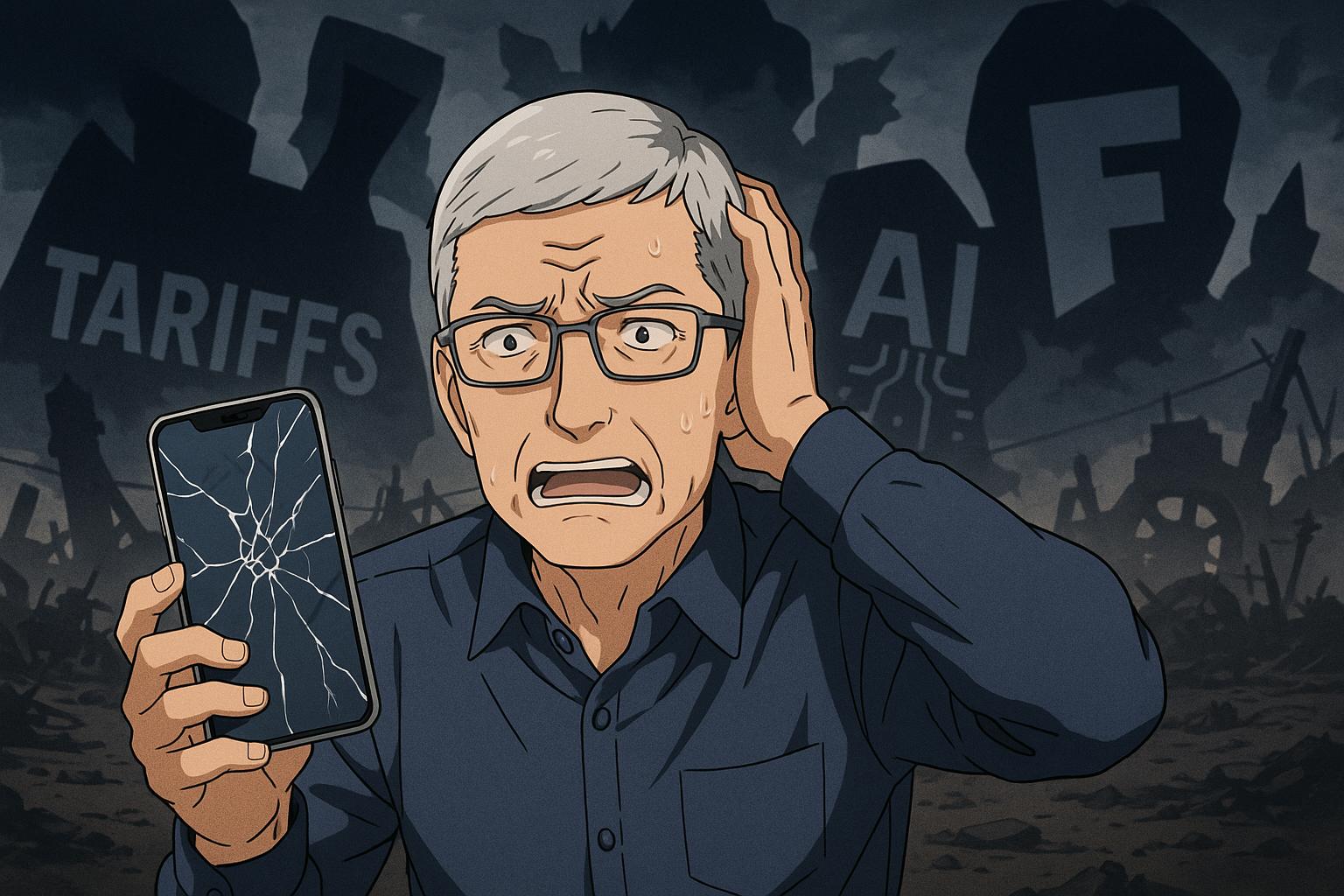Apple, an iconic pillar of the tech industry, now finds itself navigating treacherous waters as it grapples with three significant challenges: rising tariffs, stagnating AI advancements, and ongoing legal battles with Epic Games. Once perceived as nearly invincible, the company is now perceived to be under pressure, particularly from the recent pronouncements of former President Donald Trump.
In a striking assertion, Trump has threatened to impose a 25% tariff on any iPhones not manufactured within the United States, an ultimatum that echoes his administration's earlier stance on tech manufacturing. “I expect their iPhones that will be sold in the United States of America will be manufactured and built in the United States, not India, or anyplace else,” he stated, emphasizing his demand to Tim Cook during his public addresses. This pronouncement comes against a backdrop of Apple’s efforts to diversify production from China, where the company has long faced a staggering 145% tariff barrier on exports. Analysts fear that non-compliance could escalate prices for consumers alarmingly; estimates suggest that a flagship model like the iPhone 16 Pro Max could see its price soar from $1,199 to approximately $2,150. Apple's earlier strategies to shift manufacturing bases to countries such as India and Vietnam have been significantly hampered by the complexity and cost of such transitions, stirring doubts about the company's agility in adapting to the shifting geopolitical dynamics.
Amid these tariff pressures, Apple faces scrutiny over its lacklustre performance in the artificial intelligence arena. With generative AI capabilities failing to match those of competitors like Google, Apple’s future growth appears uncertain. The company once promised a suite of AI features branded “Apple Intelligence,” unveiled at its developer conference last year, but the execution has been largely dissatisfactory, limited to inadequate notification summaries. Internally reported chaos within Apple’s AI division indicates a troubling disarray that contrasts sharply with the company’s traditionally secretive operations. While companies like Google integrate AI extensively into their flagship products, Siri remains frustratingly unrefined, highlighting Apple's struggle to innovate in this fast-evolving field.
On the legal front, Apple faces a continuing battle with Epic Games, the developer behind the hugely popular Fortnite. The recent court ruling found that Apple violated a prior order by preventing app developers from linking to their payment systems, allowing Epic to bypass the hefty commission Apple takes from in-app transactions, which ranges from 15% to 30%. This legal setback not only affected Apple's revenue model but has also raised concerns about the broader implications for its tightly controlled software ecosystem. As Epic Games re-enters the App Store, other developers may also seek to circumvent Apple’s payment structure, potentially leading to a significant transformation within Apple’s App Store dynamics.
As Apple contends with these multifaceted challenges, industry observers remain attentive to the company’s next moves. Recently, Apple announced a substantial $500 billion investment in U.S. facilities over the next four years, aimed partly at alleviating the impact of rising tariffs while simultaneously creating jobs. This initiative, which includes establishing a server production facility in Houston particularly for supporting AI products, underscores Apple's strategic pivot amidst external pressures.
In stark contrast to Apple’s struggles, OpenAI has been making significant strides. The ambitious AI firm has launched expansive initiatives, notably acquiring Jony Ive’s startup for $6.4 billion to fuse hardware design with AI development. This move reflects an aggressive pursuit to create AI-integrated devices that may rival Apple's historic products, marking a possible shift in the tech landscape as competitors continue to innovate aggressively.
Ultimately, Apple finds itself at a crossroads. The company must not only navigate the tumult of political and legal challenges but also reinvigorate its product lineup with innovations that align with consumer expectations in an increasingly AI-driven marketplace. Whether it can successfully transform its extensive challenges into opportunities remains to be seen, but the urgency for change is undeniable.
Reference Map:
- Paragraph 1 – [1], [2]
- Paragraph 2 – [1], [5]
- Paragraph 3 – [1], [3], [6]
- Paragraph 4 – [2], [7]
- Paragraph 5 – [1], [4]
- Paragraph 6 – [1], [3]
Source: Noah Wire Services
